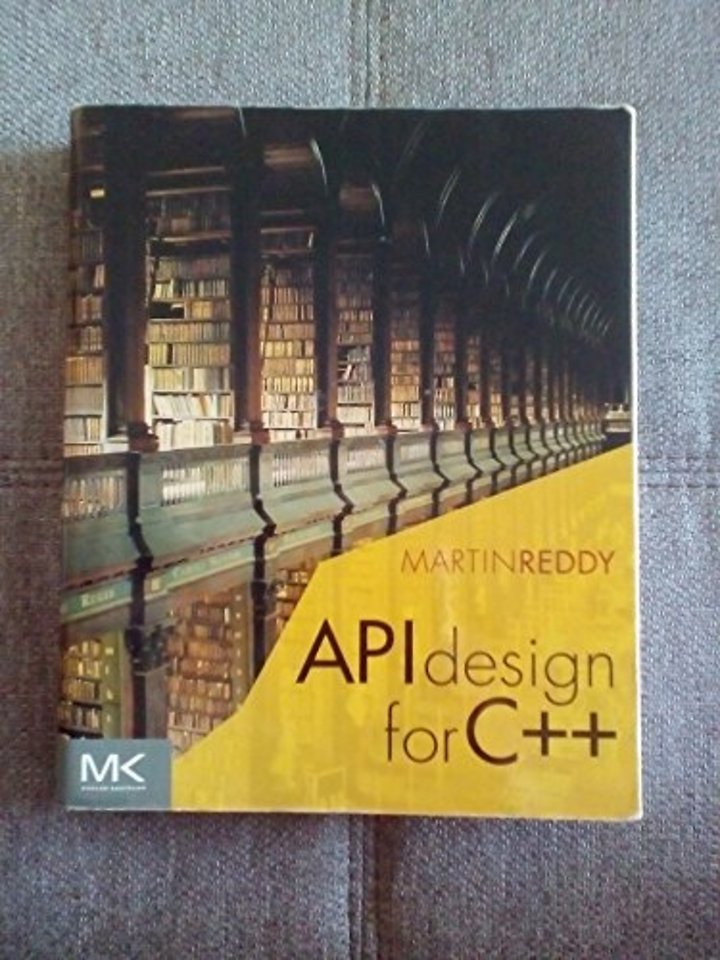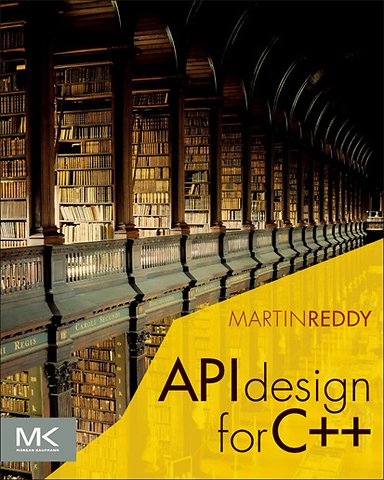API Design for C++
Pratical techniques of API design that produce robust code for the long term
Samenvatting
The design of application programming interfaces can affect the behavior, capabilities, stability, and ease of use of end-user applications. With this book, you will learn how to design a good API for large-scale long-term projects.
With extensive C++ code to illustrate each concept, 'API Design for C++' covers all of the strategies of world-class API development. Martin Reddy draws on over fifteen years of experience in the software industry to offer in-depth discussions of interface design, documentation, testing, and the advanced topics of scripting and plug-in extensibility. Throughout, he focuses on various API styles and patterns that will allow you to produce elegant and durable libraries.
Key Features:
- The only book that teaches the strategies of C++ API development, including design, versioning, documentation, testing, scripting, and extensibility.
- Extensive code examples illustrate each concept, with fully functional examples and working source code for experimentation available online.
- Covers various API styles and patterns with a focus on practical and efficient designs for large-scale long-term projects.
Related Links and Downloads
This book is for software engineers developing C++ code to be used by other developers, whether via APIs, libraries, device drivers, or other reusable components.
Specificaties
Inhoudsopgave
Preface
1. Introduction
-What Are Application Programming Interfaces?
-What's Different about API Design?
-Why Should You Use APIs?
-When Should You Avoid APIs?
-API Examples
-File Formats and Network Protocols
-About This Book
2. Qualities
-Model the Problem Domain
-Hide Implementation Details
-Minimally Complete
-Easy to Use
-Loosely Coupled
-Stable, Documented, and Tested
3. Patterns
-Pimpl Idiom
-Singleton
-Factory Methods
-API Wrapping Patterns
-Observer Pattern
4. Design
-A Case for Good Design
-Gathering Functional Requirements
-Creating Use Cases
-Elements of API Design
-Architecture Design
-Class Design
-Function Design
5. Styles
-Flat C APIs
-Object-Oriented C++ APIs
-Template-Based APIs
-Data-Driven APIs
6. C++ Usage
-Namespaces
-Constructors and Assignment
-Const Correctness
-Templates
-Operator Overloading
-Function Parameters
-Avoid #define for Constants
-Avoid Using Friends
-Exporting Symbols
-Coding Conventions
7. Performance
-Pass Input Arguments by Const Reference
-Minimize #include Dependencies
-Declaring Constants
-Initialization Lists
-Memory Optimization
-Don't Inline Until You Need To
-Copy on Write
-Iterating Over Elements
-Performance Analysis
8. Versioning
-Version Numbers
-Software Branching Strategies
-Life Cycle of an API
-Levels of Compatibility
-How to Maintain Backward Compatibility
-API Reviews
9. Documentation
-Reasons to Write Documentation
-Types of Documentation
-Documentation Usability
-Using Doxygen
10. Testing
-Reasons to Write Tests
-Types of API Testing
-Writing Good Tests
-Writing Testable Code
-Automated Testing Tools
11. Scripting
-Adding Script Bindings
-Script-Binding Technologies
-Adding Python Bindings with Boost Python
-Adding Ruby Bindings with SWIG
12. Extensibility
-Extending via Plugins
-Extending via Inheritance
-Extending via Templates
Appendix A: Libraries
-Static versus Dynamic Libraries
-Libraries on Windows
-Libraries on Linux
-Libraries on Mac OS X
-Bibliography
Index
Anderen die dit boek kochten, kochten ook
Net verschenen
Rubrieken
- aanbestedingsrecht
- aansprakelijkheids- en verzekeringsrecht
- accountancy
- algemeen juridisch
- arbeidsrecht
- bank- en effectenrecht
- bestuursrecht
- bouwrecht
- burgerlijk recht en procesrecht
- europees-internationaal recht
- fiscaal recht
- gezondheidsrecht
- insolventierecht
- intellectuele eigendom en ict-recht
- management
- mens en maatschappij
- milieu- en omgevingsrecht
- notarieel recht
- ondernemingsrecht
- pensioenrecht
- personen- en familierecht
- sociale zekerheidsrecht
- staatsrecht
- strafrecht en criminologie
- vastgoed- en huurrecht
- vreemdelingenrecht







